Student Blog
First-Gen
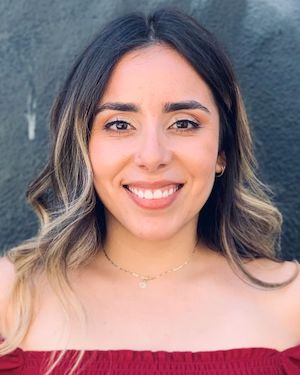
10 tips from me to you ⟩
December 20, 2021, by Silvia
Classes First-Gen Life Hacks
My DMs — and by DMs, I mean email — have been poppin’ with variations of the same question: “Any advice/tips regarding the program or in relation to pursuing higher education?”
To be completely honest, I don’t know how I have made it this far. I guess it really is fake it till you make it, am I right? When you’re a first-gen student not only do you not have people to guide you through this journey, but you also don’t know what questions you should be asking to those that may be able to advise you. There’s a lot that I wish I would have known before romanticizing the idea of being the first in my family to go to college, pero no pasa nada oiga. Ya estamos aquí, y lo que me toca a mi is to share some of the things that have helped me thrive as a student and person. I’ll preface the rest of this blog by saying that these are general tips that I have put together as I look back on my academic career, but feel free to reach out for more specific advice if you need.
Okay so here we go, Blogmas day 10 = 10 tips from me to you. 😊
10. Develop a morning routine
Morning routines are your friend. When I started the program, it was completely online, which made it easy to wake up minutes before class, roll over, grab my laptop, and log on from bed. It also made it easy to fall right back to sleep . . . oops. Needless to say, this was not a productive or effective start to my school day; I felt like I needed to do something to feel awake and alert for class in the mornings. One day I decided to wake up early to work out before class and let me tell you, it was life changing. I live by my morning routine and think we should all have one. Some one told me that there are two instances during which we can have the most control over our days — you can’t control what happens throughout your day, but you can decide how you start and end your day (for the most part). I choose to start my day with a morning routine because it sets the mood for the rest of my day and makes me feel accomplished from the get-go.
Silvia’s morning routine: wake up between 6:00 AM – 6:30 AM, do a 20-minute workout, drink a cup of water + coffee or tea, do my skincare.
9. Sleep
Raise your hand if you’ve ever been told to get a good night’s sleep before an exam because you’ll do better than if you stay up late trying to cram . . . but you still chose to stay up? I won’t raise my hand because I don’t believe in pulling all-nighters. In undergrad I may have pulled one or two, but since starting OT school, I don’t compromise my sleep. Listen to NPR’s Ted Radio Hour podcast “Maslow’s Human Needs” starting at 6:30 — you can thank me later.
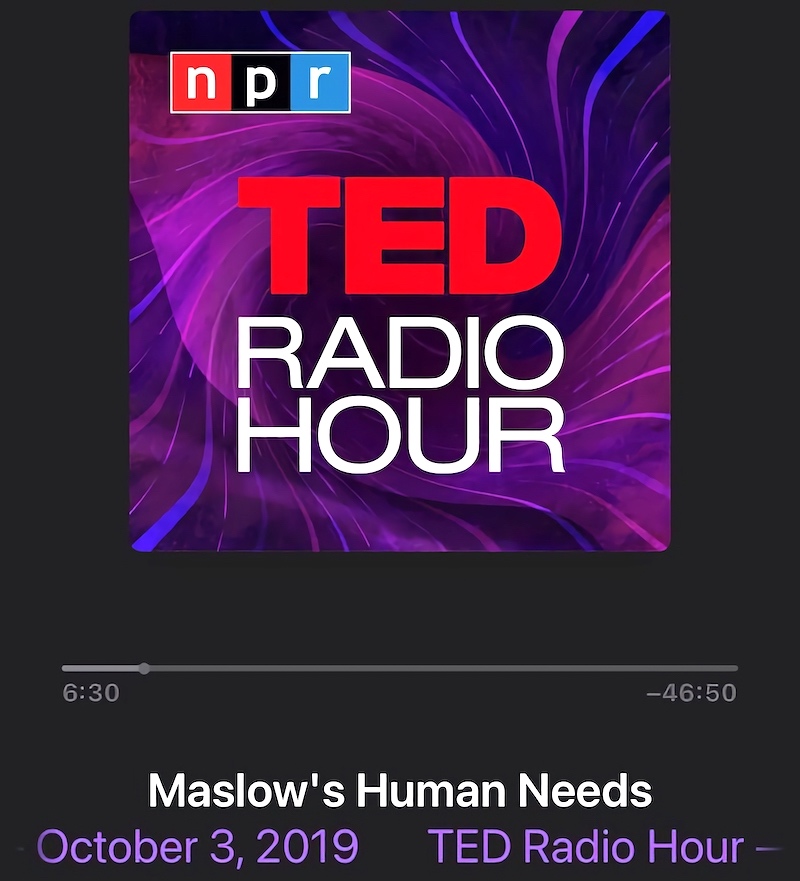
NPR Ted Radio Hour
8. Take a mental health day
That’s it. That is the advice. Don’t go to school, don’t go to work. Take a mental health day.
7. You don’t have to be productive every day
The student urge to make a to-do list of everything they want to get a head start on/finish when they have a day off is real. It’s me, I’m student. Last semester I had class Monday-Wednesday and fieldwork on Fridays. Thursdays were my free days and when I tried to be as productive as I could by getting ahead on readings or finishing assignments, on top of doing ambassador work. Some days though, I was tired and didn’t want to do any schoolwork. At first, I would beat myself up for wasting my day doing “nothing,” thinking it wasn’t “productive.” Truth is, we’ve been conditioned to think that we must always be working or on-the-go, that giving our bodies a rest seems unacceptable. But, in the wise words of my friend Amy, “It’s ok. You don’t need to be productive every day.”
6. Set boundaries
I’m not sure that I do this too well, but Kim said I do so I’m listing it here. Basically, check in with yourself and be realistic of how much you can handle. If you need to say no to something, or push a commitment back, do it.
5. What works for you, works for you
One thing about my cohort is that we help each other out. Everyone shares their study materials — whether it is a Quizlet or a study guide — and I love them for this. However, I can’t stress how important it is to know that what works for them may not work for you and vice versa. When my friends started sharing their study materials for an exam that I hadn’t even thought of, I became anxious, and the impostor syndrome kicked in. Was I smart enough or competitive enough to be in this program? I had to give myself a pep-talk to remind myself that we have all gotten here doing things differently and what works for me, works for me, anything beyond that can be used to supplement my study skills and habits. Let me know if you need a pep-talk.
4. Plan your days
I use my planner religiously. Even if my days look the same every day, I write down my schedule to a T, and try to stick to it as much as possible. Similar to my morning routine, this gives me a sense of control over my day, and there’s just something so satisfying about crossing things off as you go through your day.
3. “Not my best work” is good enough
If I had a dollar for every time I turned something in last semester and said, “that was not my best work,” I would have a lot of money, still not enough to pay my tuition, but enough to kick off my last semester of grad school with a girls trip.
For real though, doing the bare minimum is good enough sometimes. If you want to have a life outside of school, while still being a “good student,” you’re going to have to learn to prioritize which assignments need to be your best work, and which don’t. If it is a credit/no credit assignment do not spend more than an hour on it (and that’s pushing it).
2. Fake it till you make it
Pretty self-explanatory, I think.
1. Grades don’t matter
Ok, they do . . . but not really. All I can tell you is that if you’re debating between 1) depriving yourself of your favorite and restorative occupations to stress over studying to get an A, or 2) studying modestly while also balancing your other occupations and getting a B, do the latter. There’s more to life than school. You’re still going to graduate and become a great occupational therapist.
Alright friends, that’s it. I have to get back to babysitting but I’ll be back for Blogmas day 2!
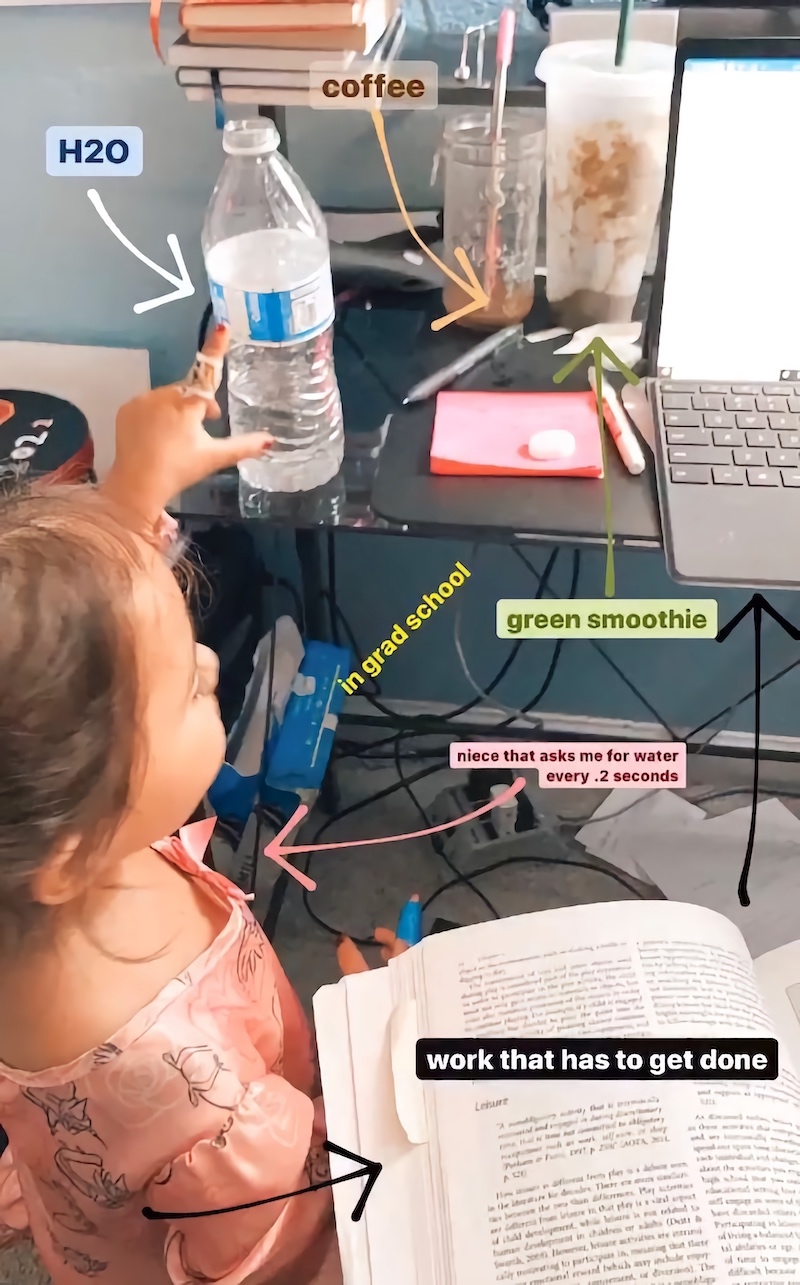
Zoom University days with my niece, Demi
⋯

La Primera, Pero No La Ultima ⟩
November 9, 2021, by Silvia
Diversity First-Gen
To my sisters and to the siblings of other first-generation students: you belong here. We may be the firsts, but we won’t be the lasts.
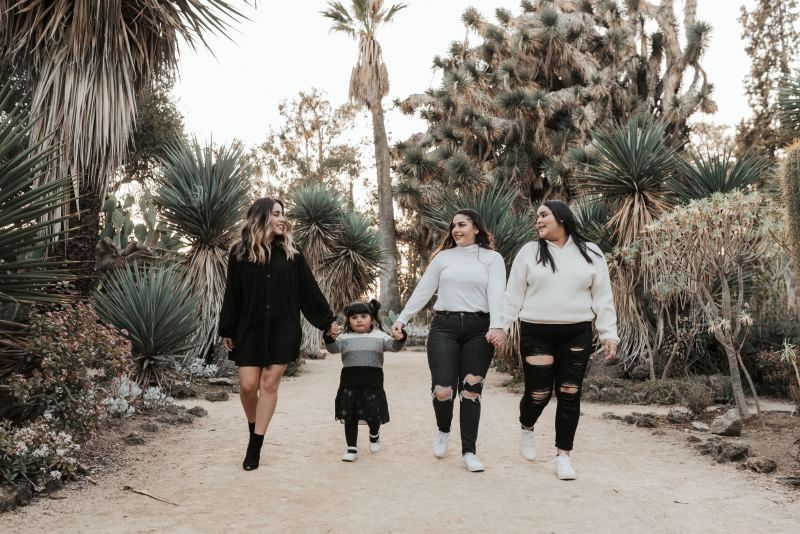
Hermanas, I will hold your hands every step of the way — Photo by: fatimajphotography
“Everybody looks rich and smart” — An observation of the USC Village made by my sister.
Sis — do I look rich to you? Maybe a little smart, but rich? Talk about a “she doesn’t even go here” moment. I think about this moment a lot because reading between the lines it means that she can’t fully believe that I do go here, and even more upsetting, I don’t think she sees the possibility of herself going here either. This speaks to feeling like you don’t belong in certain spaces because when you look around, there isn’t many, if any, people who look like you. Though her description may not encapsulate everyone who goes to USC, her feelings and thoughts are valid. I, along with many other first-generation students, have felt this way throughout our collegiate journey.
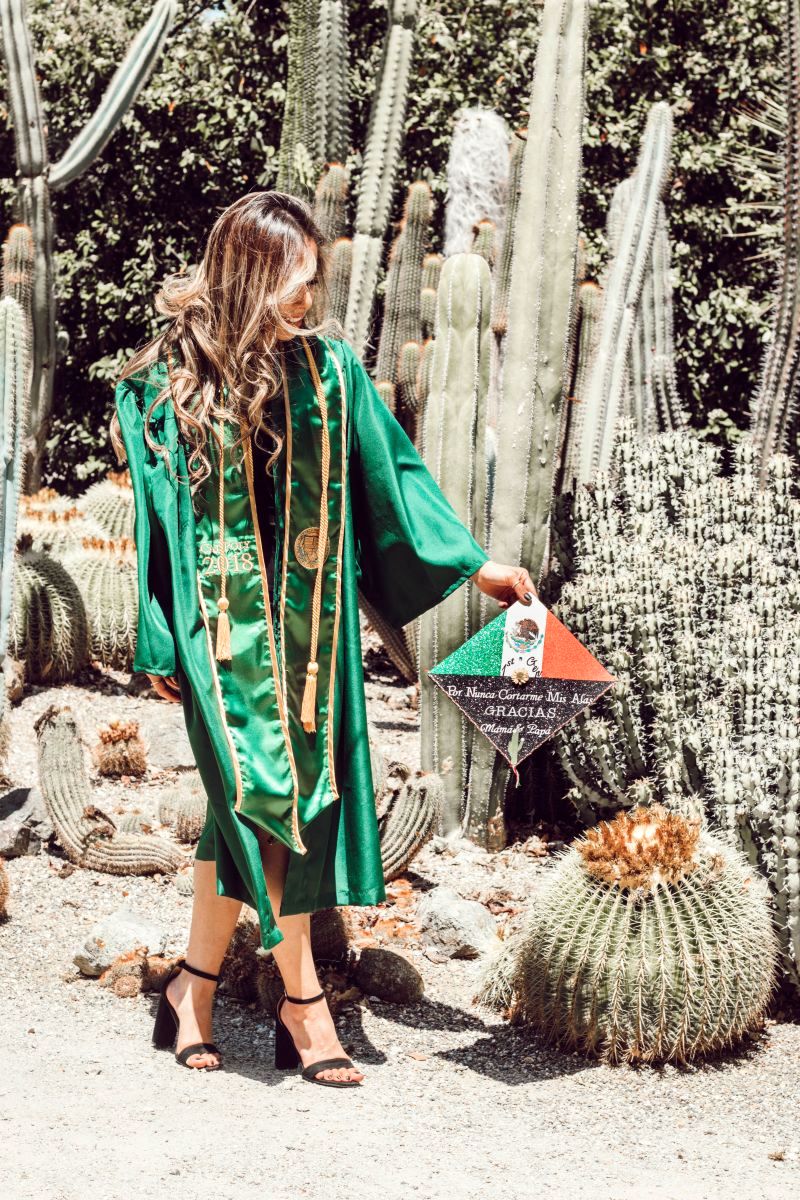
Graduating Undergrad as 1st Gen — Photo by: Madison Noelle Photos
When I tell you that immigrant, three-year-old, non-English speaking me could have never imagined being here today — finishing my master’s degree at the top OT program — I mean it. Growing up, college was never a topic of conversation in my house, yet education was always emphasized to be the key for a better future. Getting good grades was expected and not something to be rewarded for — the one time I asked my mom if I could get an allowance for having straight As she was quick to say “. . . mira mira, ya parece que te voy a dar dinero por hacer tu trabajo en la escuela . . . esa es tu responsabilidad.” Being a good student was my responsibility and something I took great pride in. Subconsciously, it was also something I held onto with the hopes of getting into a “good” college one day.
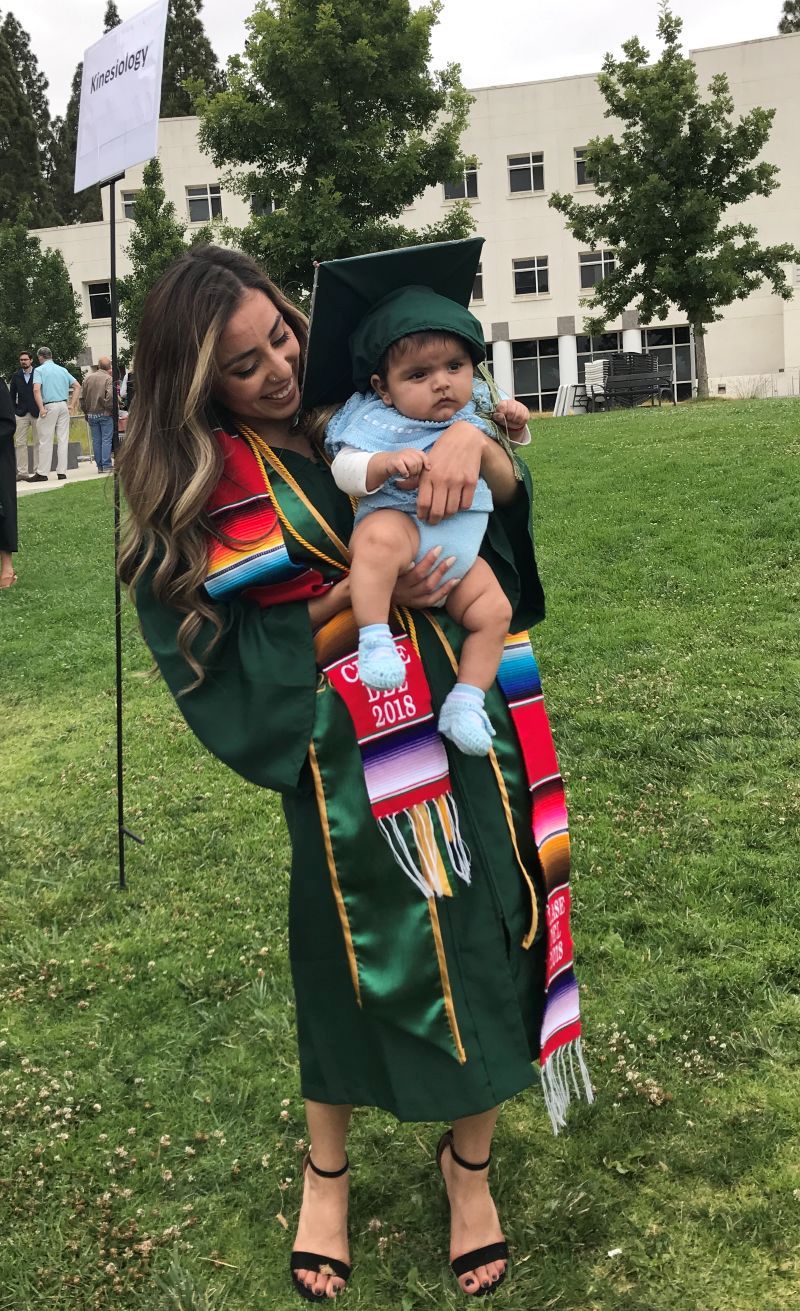
Baby Meeks and I at our undergrad graduation
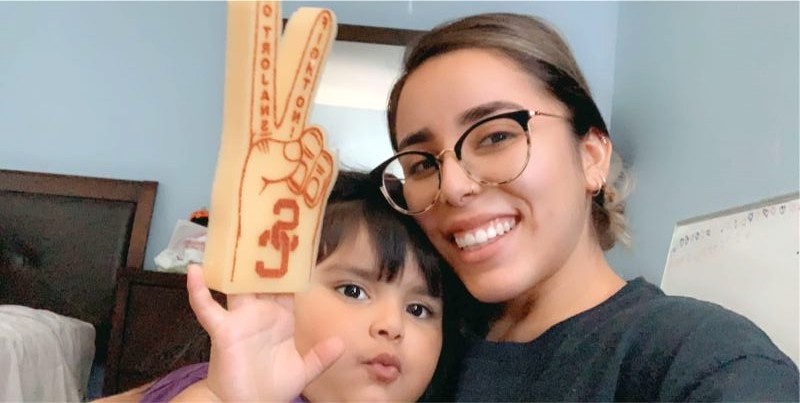
3 year-old Meeks and I celebrating the end of the summer semester
Going to college is such a romanticized notion though . . . from choosing your dream school, to moving away from home, living in a dorm, meeting the people who will become your lifelong best friends, and everything else that you daydream about until reality hits. How do you get to live all these experiences when you don’t even know the name of any universities (besides the ones stamped onto the sweaters your classmates wore), when you don’t know how/where to apply, when you’re poor and probably can’t even afford to live these experiences? I remember asking my dad if he had a savings account because, if I decided to go, college would be really expensive. He didn’t give me a clear answer but assured me that if I wanted to go to school, we would make it happen. In his words, “Hay mucho sacrificio que se tiene que hacer, pero independientemente de eso, [mientras que tenga el apoyo de todos, yo puedo] salir adelante.” Needless to say, pursuing higher education has been a very tiring journey.
It’s almost like being completely lost in the application process and scared that somehow you incorrectly inputted something in your FAFSA is a rite of passage for first-generation students. And I know for a fact that this isn’t true for all college students because I can name some of my high school peers whose parents did everything for them — but that’s besides the fact and my point is simply that we’re not all on an equal playing field. Being first-gen means figuring it out on your own and paving the way for those who will follow after you. Though this is rewarding, it is exhausting.
No one really talks about the culture shock that you may experience, the impostor syndrome, the burnout, the guilt, and all the other not-so-good things that come with college and that are compounded by being first-gen. Fully unpacking what it means to be first-generation, however, cannot be done in one blog, so stay tuned for the sequel. But I don’t want to end this blog without acknowledging that in the process of chasing and living out this dream of being the firsts in our families to go to college, we often lose sight of who we are and what we want. We carry the hopes, dreams, and sacrifices of our parents and families, which fuel our academic drive but also hold us back from other things we want to do with our life. So, I encourage you to check-in with yourself; what do you want?
⋯

Occupational Therapy, but Make it Dramatic ⟩
September 2, 2021, by Silvia
Admissions First-Gen What are OS/OT?
I’d be lying if I said I wasn’t dramatic but being dramatic is what got me here, kind of.
You see, the moment I decided I wanted to go to college in the first place was very movie-like. I was a junior in high school when my family drove to Tijuana, Baja California for a weekend trip. I sat in the back of our Yukon with my head leaning against the window staring into the distance, probably contemplating my life, when I saw it. There it was written on the building: “UCSD School of Medicine.” I don’t know if you believe in signs, but this was mine. I was destined to become a doctor.
When college application season came around, I had no idea what I was supposed to do — I didn’t even know what a major was (the first-generation in me was showing). One day I was randomly talking to a girl in my class about what school she was applying to and what “major” she had chosen. This is when I discovered kinesiology and loved everything about it. Naturally, I changed my mind and decided I wanted to be a physical therapist, which was fine right? After all, it was still a career in the medical field. So, there I went applying to Cal Poly SLO and declaring kinesiology as my major. I was really going to college you guys.
When I got to college, we had an orientation into the major. That’s when I first met Dr. Clark. Dr. Clark began his introduction by telling us that we were going to start off wanting to become physical therapists but would leave the program wanting to be occupational therapists. I didn’t believe him until I failed chemistry. Imagine this: I get into my dorm, log onto my student portal, check my grade, and begin crying as I slide down the door in slow motion thinking I’m going to be kicked out of the university for failing a class. I could have won an Emmy or an Oscar. After I got it together, I realized that I was fine, everything was fine, and I didn’t need chemistry in my life anyway. I decided to change my academic track to one that didn’t require me to take the organic chemistry series and that is how occupational therapy popped up once again.
The more I learned about occupational therapy through my own research and volunteering experiences, the more certain I became that it was what I wanted to do. Occupational therapy highlights the humanity of an individual and recognizes that they are more than a label or diagnosis. We help individuals identify what is meaningful to them and their lives and develop a holistic approach to meet their goals and needs. I’ve come to understand that it’s not about what I do (i.e., deliver medical services) but about how I do it (i.e., being client-centered) that draws me to this field.
So, be a little dramatic, for all you know you may stumble upon your dream career.
⋯
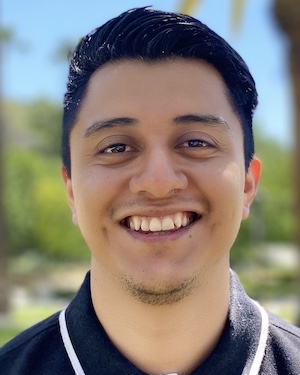
Hola, Yo Soy un Terapeuta Ocupacional (Hello, I Am an OT) ⟩
May 11, 2021, by Daniel
Diversity First-Gen What are OS/OT?
“Hola, yo soy un terapeuta ocupacional . . .” (Hello, I am an occupational therapist). This is part of my weekly introduction with Spanish-speaking clients. It is also a reminder of the reason I pursued this profession, as well as the sacrifices my family and I have made over the last three years. Walking into a room or simply calling a new client and starting a conversation in Spanish puts a smile on my face. Every time I speak to one of my clients, I picture my mom and dad. It feels incredible to be able to advocate for people who come from a similar background as mine.
During my time at USC, I have shared many personal things with you all. I understand the privilege of being able to write and freely express myself on this platform. Not everyone gets this opportunity, so I wanted to show that my experience as an undocumented student is as valid as anyone’s. That it is okay for those reading to feel proud of their language, culture, and history. That you belong in this program and profession.
Today I write to you just a couple of days away from walking the stage for my doctoral program. It feels really strange to say that; I think it’s the impostor syndrome that lingers. My family and friends still need to remind me that this is a huge accomplishment and to take a moment to celebrate. But those who know me pretty well know that I think this is just another step in what’s to come. First-generation, undocumented students are capable of so much, and for me, it’s time to capitalize on that. This is the end of one journey but the beginning of a new one.
This grad school journey has not been easy at all. Some semesters I wasn’t even sure I would be back given the financial limitations and ongoing immigration rhetoric surrounding DACA. The people around me made it possible to pursue this dream. There are so many who helped me along the way, and I want to acknowledge them as best as possible.
Mi familia, gracias por todo, I love you so much. My parents are the most courageous people I know. Growing up, they always told my sister and me to study hard because we would end up like them if we didn’t. But as I grow older, all I want to do is be like them. Thank you to my sister and my girlfriend for always being there for me. The sleepless nights studying and finishing assignments was all for them.
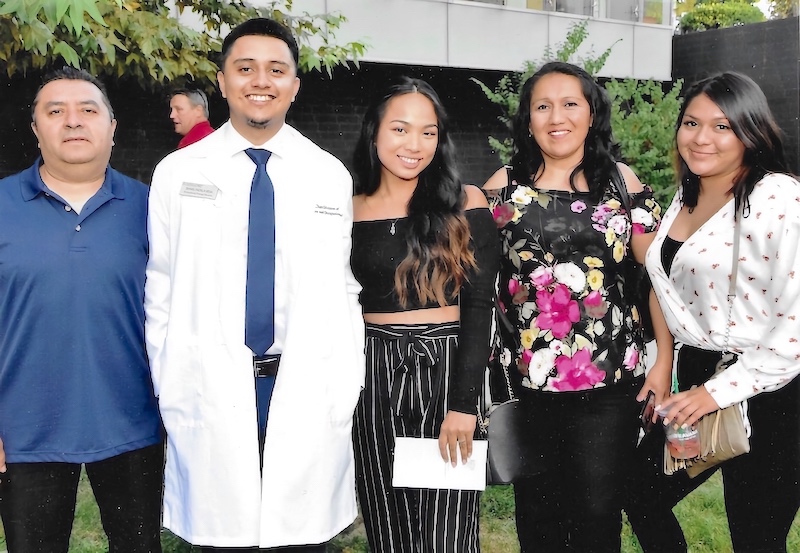
The CSUN Dream Center, I am forever grateful for your mentorship and for giving me the confidence to even apply to USC. You made me believe that I could accomplish my goals despite my undocumented status.
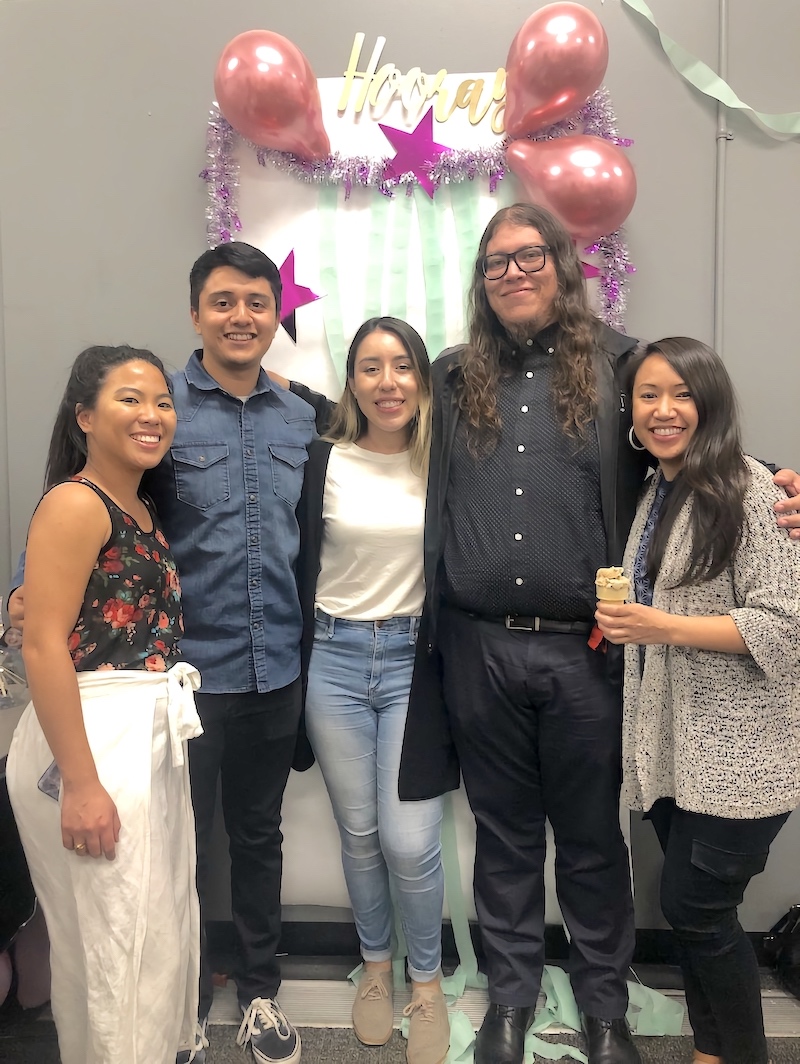
Thank you to the Chan Division, Norman Topping Family, Latino Alumni Association, and Immigranted for supporting me when I had no idea how I would pay for OT school. You all made this moment possible.
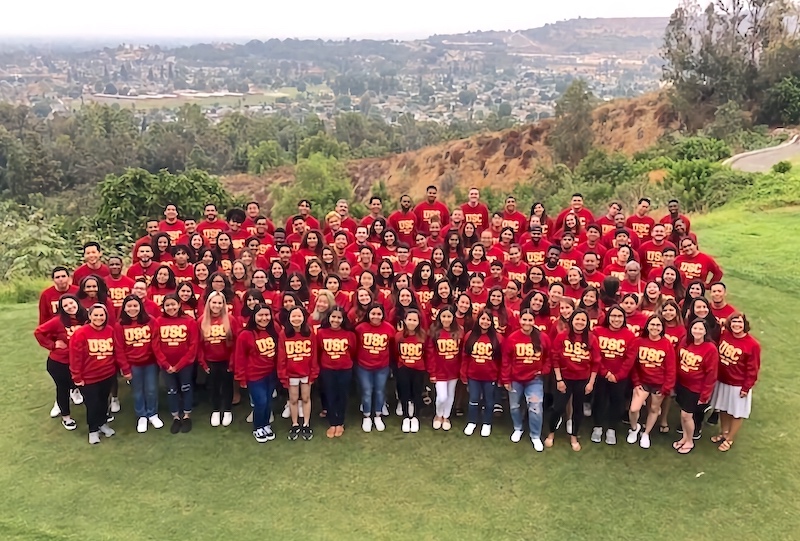
Thank you to the LRCC Research Lab and the Student Ambassadors team; it has been an honor to work with two outstanding teams. During the pandemic, these two teams faced many obstacles, adjusted, and we got things done! I have worked with two of the best bosses in the Chan Division, Kim Kho and Dr. Beth Pyatak.
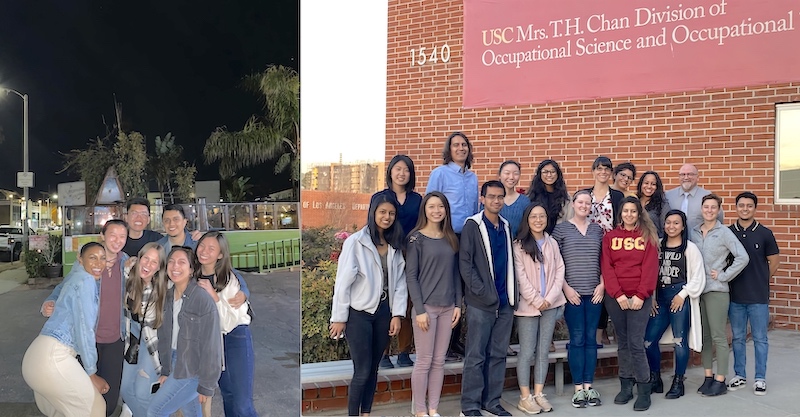
Thank you to all my classmates who challenged me and helped me grow. A special thank you to Katie Bui and Marilyn Rodriguez, two people who always had my back since day one.
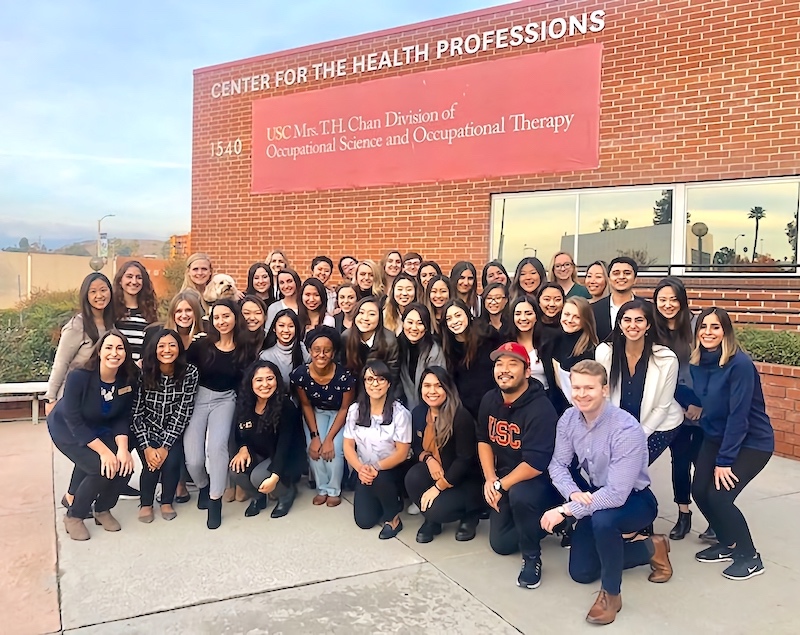
Lastly, a special thank you to Dr. Celso Delgado (el profe). You became a mentor to me throughout this entire OT experience. You reminded me that I belong in these spaces, that a Latinx kid from Van Nuys could make it.
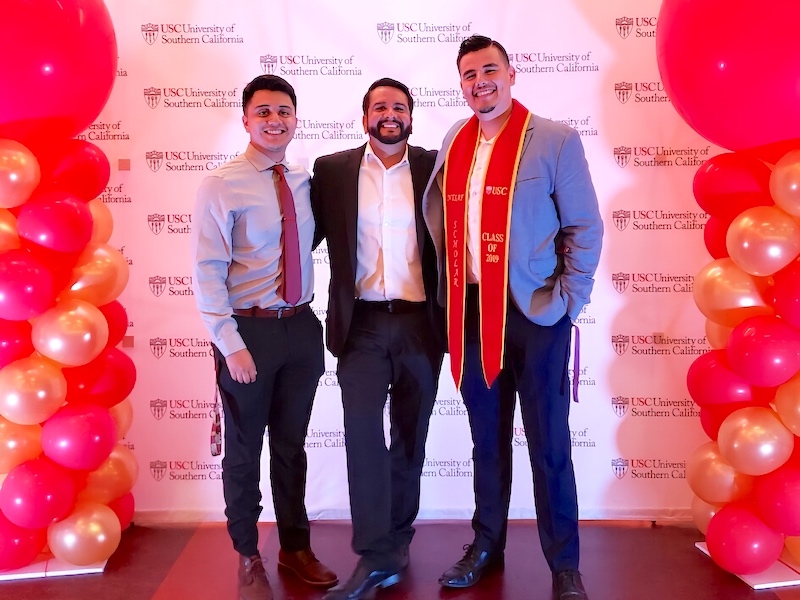
So, this it! I have never been good at saying goodbye; I tend to simply move on and take on whatever is next. I want to take a final moment to honor my ancestors and the generational sacrifices that it took for me to get to this point. This right here is what our parents believed in as they decided to migrate. But I don’t want to be remembered as “the successful immigrant” because all immigrants, undocumented people, etc. deserve the same level of respect and acknowledgment as the “educated ones.” I had different opportunities and circumstances. Para toda mi gente Latinx y indocumentada, este logro es por todos ustedes, nosotros seguiremos luchando y echandole ganas. Although I don’t know for certain what my future looks like in this country, I do know one thing, that I will always continue to Fight On! No one can ever take away what I’ve accomplished these past years and my soon-to-be title, Dr. Daniel Padilla Vega.
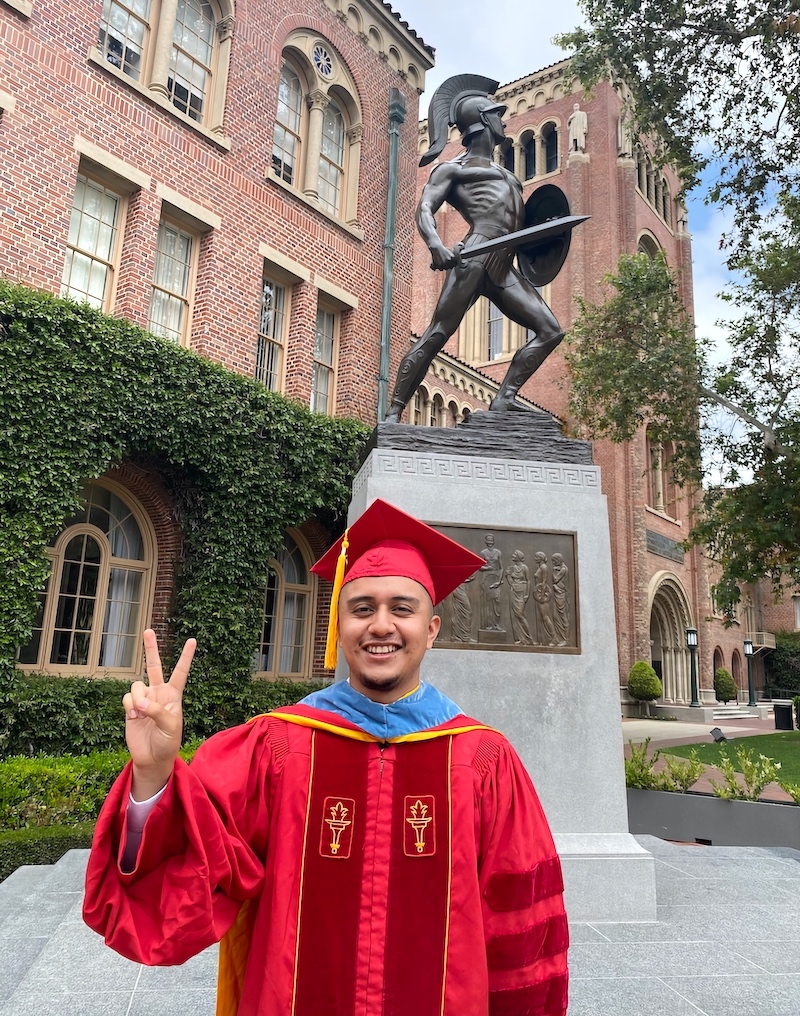
⋯
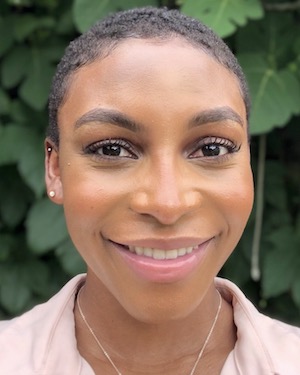
Being “First-Gen” ⟩
November 9, 2020, by Lamoni
Admissions Diversity First-Gen
This week is USC’s “First Generation Student Week.” USC defines a first-generation student as someone whose parents do not have four-year college degrees. At USC, roughly 20% of the students are considered “first-gen” and that includes me! Because this week is about highlighting first-generation students, I want to talk about what this experience (being the first person in my household to go to college) has been like for me. If I were to sum it up in a few words, I would say “challenging but rewarding.” I know how cliché and overused that phrase is, but it is true.
My mother was still in high school when she had me and though her and my dad regularly tell me how much joy I brought to their lives, they acknowledge the multiple challenges that come with being a young parent — one being completing higher education. Since I could remember, education, getting good grades, and going to college has been ingrained in my upbringing. After school, when my friends would play outside, I had to read “hooked on phonics” books first. Honestly, growing up in New Orleans with debilitating humidity, I was happy to stay indoors to read. My parents pushed education because they wanted me to have experiences that they did not. They instilled a hunger for learning because they figured it would keep me on the “right track.”
All my life, I strived for As. It started with getting incentives by the end of the week (a stop at Toys R’ US or extra money in my allowance) but then it was more long term — I wanted to get into a “good college” and make my family proud.
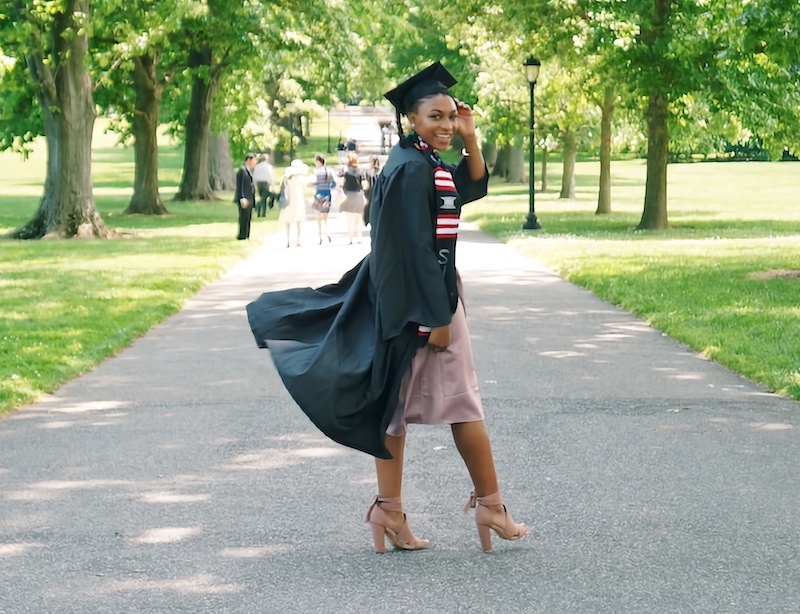
Photo of me in my cap and gown after graduating from college
Before college, everything felt like a straight path. School had always been “easy.” I never had to think about financing my education or having a place to live alongside completing readings, meeting deadlines, studying for tests. What was expected of me had completely shifted. On top of that, I went to school out of state and had absolutely no family around me. I remember a couple of times when I would cry on the phone to my mom because I felt overwhelmed. The most difficult part was reaching out to my parents and them not being able to help me. As a child and sometimes as a teenager, your parents are your superheroes. In the past, I could reach out to them for anything and together, we could come up with a solution. But now, I had to figure out everything on my own. From difficulties in class, to being a student worker all the way to handling east coast winters. They had no answers. For the first time in life, I could only rely on myself. As someone that takes a while to open up to people and someone that does not like asking for help, there were moments when I truly struggled.
During those moments of confusion and exhaustion, what kept me determined was my family — specifically, my siblings. I did not know what I was doing but I was going to figure it out — for them. Because, then, they would know that it was possible. Though I always had what I needed (food, water, shelter), I was raised in a low socioeconomic class. I, and the rest of my neighborhood, grew up on food stamps. Though my parents sheltered me as much as they could, I saw a lot of violence growing up, I saw substance abuse, and I saw family members taken away to jail. I saw what happens when people are not exposed to better opportunities or lack proper support to obtain those opportunities. I did not want my loved ones to be in that position. My parents could talk about how college was the right route to go, but they could not show me. I could show my brothers and sister and I could make my parents proud along the way. This was an opportunity to pave the way.
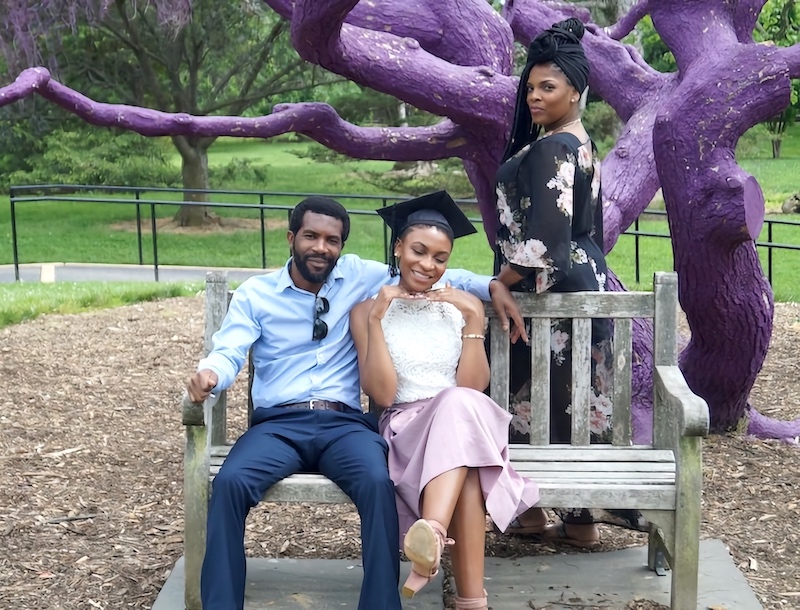
Picture of me and my parents after my college graduation
Because I am the first to get my bachelor’s degree, I will also be the first to get my master’s and later, the first to get my doctorate. While I am immensely proud of myself, I am not the only person that I do it for. As mentioned, I do it for my family. But, I also do it for other first-generation students. It is very difficult to go through such an extreme transition without guidance from your guardians. People discuss college as something that everyone must do — like it is some sort of “no-brainer” but they do not talk about how hard it is, and the resources to get through it is not readily available.
I love that there is a First-Generation Student Week because it acknowledges the challenges that first-gen students experience, congratulates us on our triumphs and provides resources so that we can continue moving forward. To all of the first-generation students, I am so proud of you. You have accomplished so much and you will continue to accomplish so much more.
⋯





